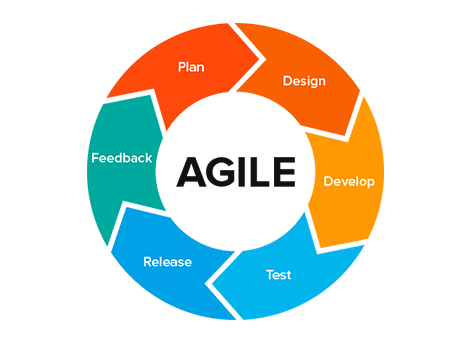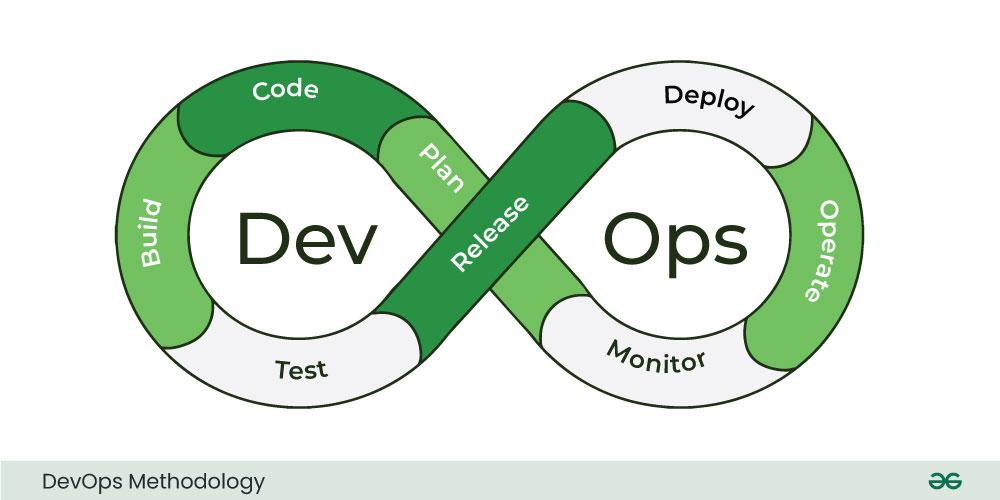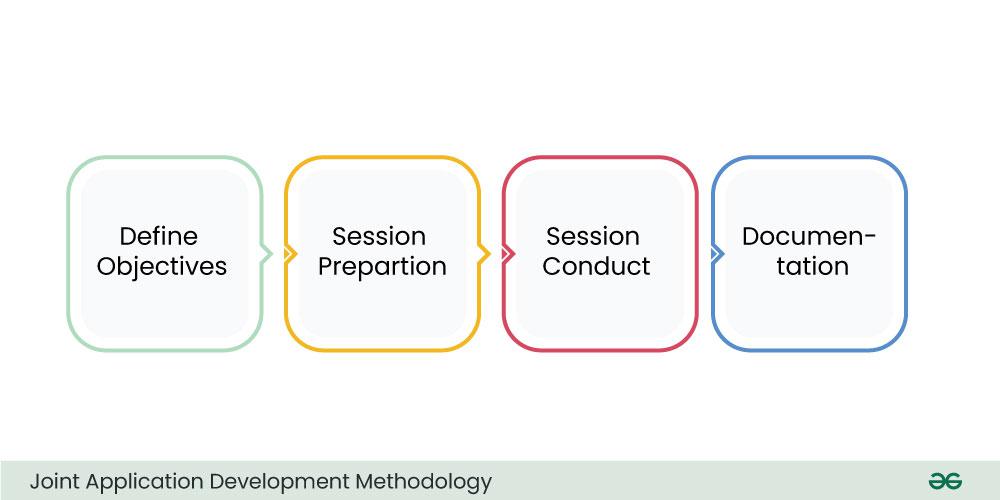What are Software Development Methodologies | 15 Key Methodologies
Last Updated :
03 Jan, 2024
The main objective of Software Development companies is to provide high quality software products at low cost. Therefore, proper planning is required and proper management is required for the software development process. Thus a proper methodology is important for achieving this type of objectives by the companies and organizations. There are multiple types of Software development methodologies and in this article a detailed knowledge is provided about the Top 15 Software Development Methodologies.
What are Software Development Methodologies ?
Software Development Methodologies are defined as a process in which the software developers design, develop and test the new computer programs and it is also used in the betterment of the software projects. These software development methodologies follow a particular design philosophy in which it helps the software developers to align these processes and the features of the software product. With the help of these agile methodologies also simplify the tasks and improve the collaboration in the companies.
Top 15 Software Development Methodology
There are various types of Software Development methodologies which are used for developing better and high quality software development projects which further help the software developers to plan, develop and test the software . The top 15 Software Development Methodologies are mentioned below:
1. Agile Methodology
In the IT field Agile methodology is one of the most popular software engineering techniques in which various software production methodologies are related to the principles of agile. The main objective of Agile methodologies is to finish the product with collaborative efforts and the main benefit of this methodology is that it ensures regular release of products and continuous improvement with every iteration.
Advantages of Agile Methodology
- Due to involvement of small iteration it delivers high quality of output.
- With the help of Agile methodology allows creative improvements whenever working on the software product.
- The agile methodology is popular for its minimal reliance and adaptivity on the initial documentation.
Disadvantages of Agile Methodology
- Agile methodology doesn’t consist of any deadlines.
- Agile methodology also lacks clarity and the project vision.

Agile Software Development Methodology
2. Behaviour-Driven Development
BDD refers to Behaviour-driven development which is a variation of agile methodology which formalizes a vision among the team members of how an app needs to be performed. BDD’s main objective is to enable the non-tech people to take active roles in the implementation of the technical functionality.
Advantage of Behaviour-Driven Development
- With the help of BDD methodology some better opportunities are provided for the collaboration between the software developers.
- Behaviour-Driven development also automates the end-user documentation which are based on the specifications.
Disadvantages of Behaviour-Driven Development
- BDD is not useful for long term projects.
- BDD methodology also requires a lot of effort and time for developing scenarios.

BDD Life Cycle
3. Lean Development
The Lean development methodology focuses on developing cost-effective and high quality softwares. The lean development workflow particularly follows a minimalist approach for deleting the extra elements like the documentation and meetings. The main objective of lean development is to make software’s which can easily accommodate the changes.
Advantages of Lean Development
- Lean methodology is effective as it is cost friendly.
- The lean development allows the team to speed the software development process and to finish more projects in short period of time.
Disadvantages of Lean Development
- Lean development lacks documentation concerning business means.
.jpg)
Lean Development
4. Scrum Methodology
Scrum is one of the most popular frameworks which is based on the agile methodology which is empirical in nature and it is famous for managing projects which do not have well defined feedback from the customers.
Advantages of Scrum Methodology
- Scrum methodology helps the team members make the decisions on the main principal project.
- With the help of the scrum methodology the developers can detect the problems fastly and easily.
Disadvantages of Scrum Methodology
- Scrum is not effective for the junior team members and it is also less effective for the big project types.

Scrum Methodology
5. Waterfall Methodology
Waterfall methodology is one of traditional methods which consist of a popular classic approach and it is also a popular version of the software development lifecycle in the field of software engineering.
Advantages of Waterfall Methodology
- Waterfall methodology can easily manage small projects and has a separate review process.
- In waterfall methodology it consists of separate development stages deadlines.
Disadvantages of Waterfall Methodology
- Waterfall methodology is not applied for the projects which need modifications on the way.

Waterfall Methodology
6. Feature Driven Development (FDD)
FDD refers to Feature Driven iterative methodology but it is in the combination with object modelling and it is also beneficial for big team projects. FDD is a five step development process which helps in accelerating the software delivery easily.
Advantage of Feature Driven Development (FDD)
- Feature Driven Development supports various teams which work parallel.
- FDD covers up all the big or small projects which require some sequential updates.
- This feature driven development methodology is mainly suitable for large projects.
Disadvantage of Feature Driven Development (FDD)
- FDD provides no documentation support to the project owners.
- FDD is a complex pattern development for the junior developers.

Feature Driven Development (FDD)
7. Extreme Programming (XP)
XP or Extreme programming is also used to define the agile methodology whose main objective is to develop a fully functional product as it is also helpful in developing complex projects with fixed deadlines. XP is mostly suitable for developing software in unstable environments.
Advantages of Extreme Programming (XP)
- Extreme programming is cost effective and it works well with large and small teams.
- XP is also useful for risk management which overall increases the chance of success.
Disadvantages of Extreme Programming (XP)
- Extreme programming needs regular reviews and meetings between the stakeholders which leads to more time consumption.

Extreme Programming
8. Spiral Methodology
Spiral methodology is a lifecycle model which is highly sophisticated and it functions by the early identifications and the reduction of the risks in a project. Spiral methodology makes sure that the software developers can make necessary changes in the design or in the code in the testing stage.
Advantage of Spiral Methodology
- Spiral methodology involves large risk analysis which further leads to less risks.
- The main advantage of the spiral model is that required changes can be made even in the last testing stage.
Disadvantage of Spiral Methodology
- Spiral methodology is a complete waste of resources for the projects which consists of low risks factors.
.jpg)
Spiral Methodology
9. Rapid Application Development (RAD)
RAD refers to Rapid Application development which is made of delivering speedy results with high quality of software and this method is particularly complemented by the participation of active users in the process of development.
Advantage of Rapid Application Development (RAD)
- The RAD model is a regular testing method which deletes the chances of drastic errors.
- RAD models tasks are completed separately and then integrated into one project.
Disadvantage of Rapid Application Development (RAD)
- RAD is not applicable and practical for the projects of low budget.
.jpg)
Rapid Application Development (RAD)
10. Prototyping Methodology
Prototyping methodology is a type of model where software developers initially make a prototype of the software solution and also visualize how it can run and prove its functions to the customers.
Advantage of Prototyping Methodology
- Prototyping methodology is used by the software developers who are working on a prototype and can easily scale it with the anticipation of the customer.
- Prototyping is the best way to present the software project in front of the customers or the clients.
Disadvantage of Prototyping Methodology
- In prototyping methodology regular changes in the design can slow down the workflows.
.jpg)
Prototype Methodology
11. Rational Unified Process Methodology
RUP refers to Rational Unified Process which is an object oriented program development. This RUP methodology is a modern approach which functions by splitting the workflow into four parts like analysis, implementation, business modelling and deployment.
Advantages of Rational Unified Process Methodology
- RUP consists of no time frames for the integration as it is a continuous process throughout the process of development.
- Rational Unified Process is used for managing the risks related to the change in request management.
Disadvantage of Rational Unified Process Methodology
- RUP is not beneficial for the new users as it can be used by the users having expert skills in it.

Rational Unified Process Methodology
12. Adaptive Software Development
Adaptive Software development model is a non-linear approach which helps to meet the initial objective and goals by adapting the requirements of the business. ASD assumes that every life cycle can be iterated and modified whenever another one is executed.
Advantages of Adaptive Software Development
- ASD method tools make sure that the development occurs in high quality and low maintenance products.
- For quickly changing the requirements short feedback loops provide more opportunities.
Disadvantage of Adaptive Software Development
- ASD involves regular collaboration with the users throughout the development phase which takes a lot of time.

Adaptive Software Development Methodology
13. Dynamic Systems Development Model
Dynamic Systems development model is an easy to use methodology and its main principle is the model is a perfect software which involves end users a lot and establishes a basic understanding of system functions.
Advantages of Dynamic Systems Development Model
- Dynamic system models are always in the budget range and timeframe.
- This dynamic system development model is easy to use with the access of end users by the software developers.
Disadvantage of Dynamic Systems Development Model
- Dynamic systems models are only useful for businesses with one time projects or low budgets.

Dynamic System Development Methodology
14. DevOps Methodology
DevOps methodology is used in IT operations to function together and allows the teams to collaborate from the design phase to the product release phase. DevOps also provides developing, testing and releasing software’s on short time.
Advantages of DevOps Methodology
- DevOps methodology provides regular delivery and also allows the company to make product improvements whenever it is needed.
- The simultaneous delivery of work between both the teams on the project activities accelerates the software delivery.
Disadvantage of DevOps Methodology
- DevOps production environment in the cloud results in compatibility issues.

DevOps Methodology
15. Joint Application Development Methodology
Joint Application Development methodology is used for the business software solutions and the design and development stages of software production involved in interactive workshops.
Advantages of Joint Application Development Methodology
- In joint application development, high quality software is developed with a low tendency of errors.
- Joint application methodology develops insights through the exchange of valuable information between the developers and users.
Disadvantage of Joint Application Development Methodology
- The joint application methodology is a time consuming method for any project development team.

Joint Application Development methodology
Conclusion
The Software Development methodologies are important in software development and also benefits the organizations in multiple ways by helping software developers so that they produce high quality software products and cost-effective software’s. Therefore in this article all the top 15 software development methodologies are mentioned with a detailed understanding of each methodology with their benefits.
Share your thoughts in the comments
Please Login to comment...